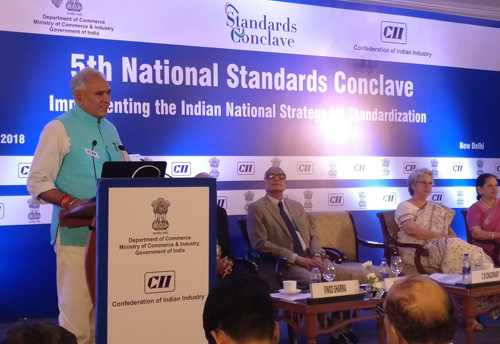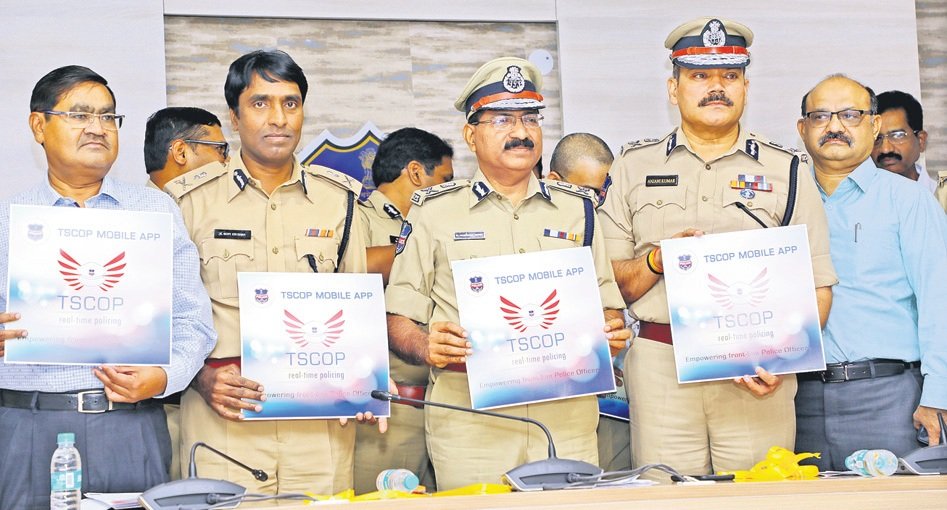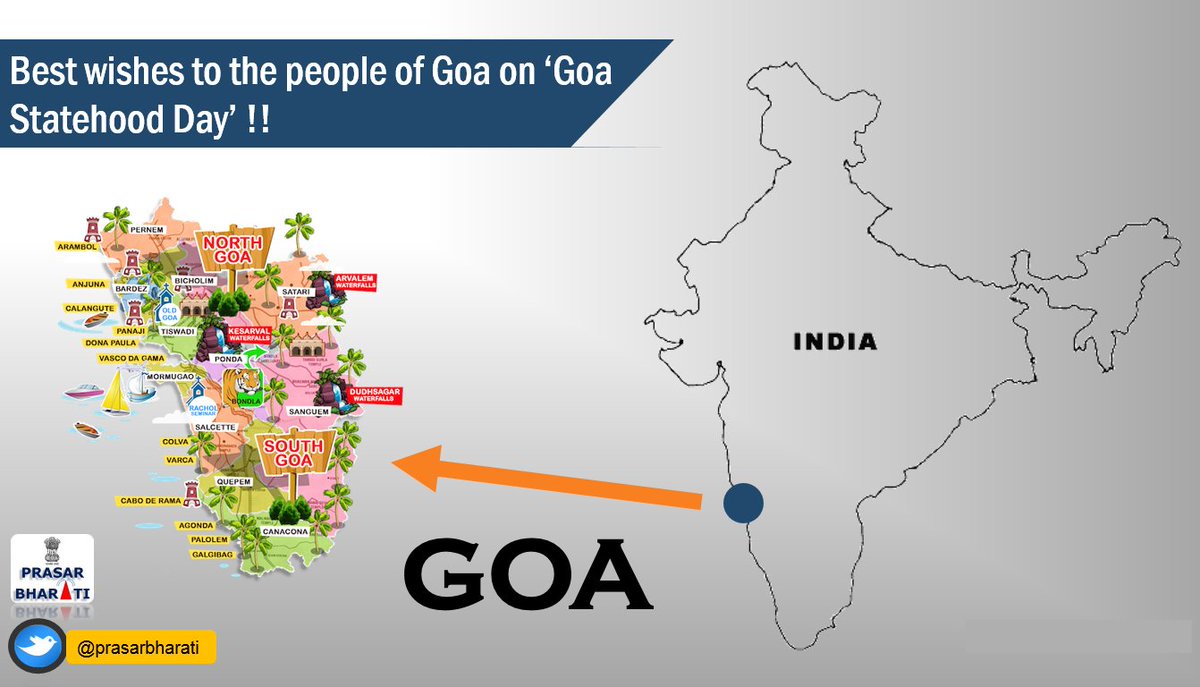1. IRDAI Sets Up Panel To Review Norms For Marketing Firms.
A 3-day National Yoga Olympiad was inaugurated at the National Council of Educational Research and Training in CIET in New Delhi today by Mr. Eric Falt, Director and UNESCO Representative of the New Delhi Cluster Office for India, Bangladesh, Bhutan, Nepal, the Maldives and Sri Lanka.
This is the third consecutive year of National Yoga Olympiad of NCERT and this year about 500 students from 26 States and 4 RIEs are participating in the Olympiad as compared to the participation of students from 25 States/UTs last year.
In his welcome address, Professor Hrushikesh Senapaty, Director, NCERT brought to the attention that the Olympiad creates awareness about a scientific and holistic way of living and the purpose is to create positive attitude among all human beings and promote peaceful living in the society. He quoted the Prime Minister, Shri Narender Modi, “It is our responsibility to ensure that right spirit of yoga is conveyed to everyone”. It is in this backdrop that the Olympiad is organized to create a sense of unity and understanding among children, who have travelled from different parts of the country – both from rural and urban areas.
Professor Saroj Yadav Dean, NCERT narrating the journey of Yoga Olympiad highlighted the importance of yoga in the development of physical, mental and spiritual health. She elaborated about the objectives, target group, yogic practices included and the criteria for judging. She stressed that Yoga Olympiad is an instrument to generate awareness about yoga among children and building team spirit and confidence.
After witnessing a mesmerizing yoga performance by young students from Government Girls school from Rewari, Haryana and Students from Girls School of Kerala, the Chief Guest, Mr. Eric Falt, thanked the NCERT for the opportunity to see such a performance.
2. Jammu & Kashmir CM Mehbooba Mufti Resigns.

Jammu and Kashmir was set for a spell of governor’s rule after chief minister Mehbooba Mufti resigned on Tuesday in a rapid turn of events after the Bharatiya Janata Party (BJP) ended its almost 40-month-old alliance with the People’s Democratic Party (PDP) and withdrew its support to her government.
Late on Tuesday, Governor NN Vohra sent a recommendation to the ministry of home affairs for imposition of Governor’s rule in the state. The move which will require the formal assent of President Ram Nath Kovind, who is travelling in Europe and Latin America and was on Tuesday night on a flight from Greece to Suriname. An MHA spokesperson confirmed that the ministry had received the Governor’s report.
The end of the BJP-PDP coalition, on a day of intensive political action in New Delhi and Srinagar, came two days after the Union government decided to resume counter-insurgency operations in Kashmir, suspended for a month for Ramzan. Coming a year ahead of national and state elections, it presages a new period of uncertainty in India’s most sensitive state, wracked by almost three decades of militancy.
3. Kaiga Generating Systems Sets New Record Of Continuous Operation.

he 220 MW Unit-1 of Kaiga Generating Systems (KGS-1) on Monday set a new record of continuous operation of 766 days, surpassing the earlier record of 765 days set by the Unit-5 of Rajasthan Atomic Power Station (RAPS-5) in 2014.With this achievement, KGS-1 stands second in the world among the Pressurised Heavy Water Reactors ( PHWRs) and fourth among all nuclear power reactors in terms of continuous operation. The unit KGS-1 has been in operation since May 13, 2016.
The 220 mw KGS-1 is an indigenous PHWR fuelled by domestic fuel. Ever since it began commercial operation on November 16, 2000, the KGS-I has generated about 2576 crore units of electricity. The power generated by it during the seven and a half years included 402 crore units of electricity produced since May 13, 2016.“Indian nuclear power plants have demonstrated continuous operations for long periods exceeding a year 27 times so far,” a Nuclear Power Corporation of India Limited (NPCIL) spokesperson said.
Five NPCIL reactors, including KGS-1, have been operating for longer periods. Four other reactors fall in the category are RAPS (659 days), KGS-2 (464 days), KGS-3 (467 days) and MAPS (357) days. “The long continuous operation of Indian nuclear power reactors testifies sound design, safety and operation & maintenance practices of NPCIL,” the spokesperson said.
Currently, NPCIL has 22 nuclear reactors with a capacity of 6780 MW in operation and eight reactors with a capacity of 6,200 MW are under construction. “Work has been initiated on 12 reactors with total capacity of 9,000 MW—for which administrative approval and financial sanction have been accorded by the Government,” the spokesman added.
4. HRD Minister Prakash Javadekar Launched National Digital Library Of India.

Union Human Development Minister Prakash Javadekar on Tuesday launched the National Digital Library, a repository of millions of academic texts from around the world which will be open for all to use.The digital library at present hosts 17 million-plus items (books, audiobooks, images etc) in 200-plus languages from more than 170 institutions.
It has been built by the Indian Institute of Technology, Kharagpur, under a project given it by the HRD Ministry, with work on it starting in early 2015.A beta-version of the portal was launched last year and is being used by millions of users already since, but an official announcement was made only on Tuesday."Earlier this digital library was limited to schools and other educational institutes only but we are breaking that barrier now. This will be open to all. On it more than 1.7 lakh books available, not just in text but in form of audiobooks as well. We are dedicating this treasure to the nation. This is free of cost now and will remain free of cost," Javadekar told the media during the official launch.Currently, there are over 30 lakh users of the portal which include schools, higher learning institutions and others.
5. 5th National Standards Conclave Held In New Delhi.

Department of Commerce, Government of India in collaboration with Confederation of Indian Industry (CII), Bureau of Indian Standards (BIS) and the National Accreditation Board for Certification Bodies (NABCB) and other knowledge partners is organizing the 3rd National Standards Conclave on 23-24 June 2016 in New Delhi. The Conclave will be inaugurated by Commerce and Industry Minister Smt. Nirmala Sitharaman.
The objective of the two day Conclave is to bring awareness and prepare Industries, Central Government Ministries, State Governments, regulatory/standards setting and conformity assessment bodies on the growing importance of “Standards” in the changing scenario of global trade. The Standards Conclave is being held in the backdrop of diminishing importance of tariffs and rising influence of standards and regulation both in goods and services trade.
6. Telangana Police Launched `Cop Connect` App.

In order to facilitate connectivity and collaboration among police officials, a WhatsApp-like application called COP CONNECT was launched on Monday by Director General of Police M Mahendar Reddy. The application would be used to share official orders and circulars and would connect the 60,000-strong police force spread across 31 districts of the State.
“Working on a secure communication channel, COP CONNECT’s end-to-end encryption will ensure absolute security and confidentiality of the internal police department’s communication,” Reddy said adding that the app is based on the Telangana State Police internal communication strategy, which aims at promoting communication within the police.
“It has all the features of WhatsApp. However, unlike WhatsApp which restricts group members to 256, Cop Connect will have no such limits.”
“Different types of groups can be created at the state level, District/Commissionerate levels, zonal level, sub- divisional level, circle level and police station level,” the DGP said.
Police officials said that the app has all features of regular mobile messaging apps and is enabled for chatting, group chats, file sharing (image, audio, video and documents) and location sharing.
It also has an iMeeting option, which helps in scheduling department meetings in a easy way.
“COP-Connect will support the professional communication and collaboration needs of police department in all units starting from police station to the State Level.”
7. Shillong Gets Selected As The 100th Smart City.

The Housing and Urban Affairs Ministry has kept on hold the 100th or the final slot of smart cities mission for Shillong, which was recently selected for its inclusion in the scheme, as the city is yet to submit its proposal due to elections in Meghalaya. Meghalaya goes to the polls on February 27.
“The 100th slot is kept on hold for Shillong. It is yet to submit the proposal. They are busy in the election. It is expected that the city will submit the proposal after the elections,” the Ministry official said.
The number of cities selected under the project stands at 99. Under the scheme, each city will get Rs 500 crore from the Centre for implementing various projects. An equal amount, on matching basis, will have to be contributed by the State or urban local bodies.
The 100 Smart Cities Mission was launched by Prime Minister Narendra Modi on June 25, 2015. As on January, 189 projects worth Rs 2,237 crore have been completed, while another 2,948 projects worth Rs 1.38 lakh crore are in various stages of implementation.
Under the mission, the cities proposed to take up various project, including “smart” roads, rejuvenation of water bodies, cycle tracks, walking paths, smart classrooms, skill development centres, upgradation of health facilities and pan city projects like integrated command control centre.
In January 2016, 20 cities were announced under the Smart Cities Mission, followed by 13 cities in May 2016, 27 cities in September 2016 and 30 cities in June 2017 and nine cities in January this year. It had kept the slot for the tenth city, Shillong, vacant as it could not submit its proposal on time.
8. Health Minister Launched National Health Resource Repository.

Union Minister of Health and Family Welfare J P Nadda launched the National Health Resource Repository (NHRR) on June 19, 2018 in New Delhi. The repository is India’s first ever national healthcare facility registry of authentic, standardised and updated geo-spatial data of all public and private healthcare establishments.
The Minister also released the National Health Profile (NHP)-2018 prepared by the Central Bureau of Health Intelligence (CBHI) on the occasion. The E-book of the annual document was also released. The National Health Profile covers demographic, socio-economic, health status and health finance indicators, along with comprehensive information on health infrastructure and human resources in health.
Significance
The National Health Profile is a very important tool as it has helped in designing various programmes such as free drugs and diagnostics and Mission Parivar Vikas.
In recent years, India has shown substantial progress on several indicators. India’s national health indicators like Infant Mortality Rate (IMR), Maternal Maternity Rate (MMR) and Total Fertility Rate (TFR) are declining faster than the world’s pace.
9. PM Modi To Inaugurate 3rd AIIB Meeting In Mumbai.

Prime Minister Narendra Modi will inaugurate the 3rd Annual Meeting of the Asian Infrastructure Investment Bank (AIIB) on June 25-26 in Mumbai.
The two-day event will be held at the Hotel Trident/Oberoi and NCPA. In the past, AIIB annual meetings have been held in Beijing, China, in 2016 and in Jeju, South Korea, in 2017.
The theme for this year`s meeting is "Mobilising Finance for Infrastructure: Innovation and Collaboration" that will see leaders from varied organizations and levels of government to share ideas and experiences for creating a sustainable future through sound infrastructure investment.
Industries Department, Government of Maharashtra is the nodal Department, Maharashtra Industrial Development Corporation (MIDC), Government of Maharashtra is the nodal agency, Confedartion of Indian Industry (CII) is the Professional Conference Organiser (PCO), Research and Information Systems for Developing Countries (RIS) is the knowledge partner, for the 3rd Annual Meeting of AIIB.
The meeting will witness the presence of top policy makers, Ministers from AIIB member countries, participants from partner institutions, the private sector and civil society organisations. Moreover, leading experts from a range of fields will be present to lead discussions and share insights on addressing Asia`s infrastructure gap in an environmentally and socially-friendly way.
10. Gujarat Launches Wind-Solar Hybrid Power Policy.

The Gujarat government on Wednesday announced wind-solar hybrid power policy - 2018, aiming to make optimum utilisation of the land and grid.
The policy, which will have a coverage period of five years, provides encouragement to renewable power producers supplying to the grid as well as to those having captive use.
Gujarat energy minister, Saurabh Patel announced the policy stating that the developer of an existing solar project will now be able to use the same land for setting up wind and solar power units. Also, it will allow them to use the common transmission line to evacuate the power.
The benefits of the new policy will be applicable for a period of 25 years or lifetime, whichever is earlier.
The electricity generated from wind-solar hybrid projects will be exempted from energy charges. The policy provides 50 per cent concession for cross-subsidy surcharge and additional surcharge when the generated energy is sold to a third party.
For the captive users, the hybrid projects will have complete waiver on cross-subsidy surcharge and additional surcharge. Also, it will qualify for 50 per cent relaxation in wheeling charges and distribution loss.
Gujarat currently generates over 5,500 MW of wind power and 1,600 MW of solar power.
11. PM Modi Laid Foundation Stone Of Paperless Vanijya Bhawan.

Prime Minister Narendra Modi on Friday laid the foundation stone of Vanijya Bhawan, a new office complex here for the department of commerce that is to be built at an estimated cost of Rs 226 crore.
Located near India Gate, the complex is being built on a plot of 4.33 acres, belonging to erstwhile Directorate General of Supplies and Disposals (DGS&D), the commerce ministry said in a statement.
It will be a completely paperless office with modern facilities such as smart access control, video conferencing and completely networked systems. The statement said that over 56 per cent of the 214 trees on the plot are either being left untouched or are being replanted on the same plot.
Adressing the media at the event Prime minister Narendra Modi said, India has moved away from culture of delaying work. He added that, GST is transforming business in the country, 54 lakh new indirect tax payers have registered after GST to take total base to over 1 crore.
On FDI Narendra Modi said, that FDI inflow in four years, foreign exchange reserves are at record highs. We have to start working on double digit GDP growth to break into USD 5 trillion economy club.
Share of India in world trade should be doubled to 3.4 pc, says PM stressing on reducing dependence on imports in sectors like oil.
12. CEMS Sets Up First-Of-Its-Kind Labs In Mumbai And Vizag.

The Centre of Excellence in Maritime & Shipbuilding (CEMS), a well-funded start-up in skill development for maritime and shipbuilding sector, has announced setting up of 24 labs -6 in Mumbai and 18 in Vizag campus. It also shared the list of courses being offered. The labs being set up include Product Design & Validation, Advance Manufacturing, Hull Design, Automation, Welding Technology, Robotics, Virtual Reality, Advance Machine & Robotics, Electrical and several others. The announcement was made in the first seminar on Competencies, Employability, Methodology and Skills organized by CEMS in Mumbai. Shri Arun Sharma, Executive Chairman said: “CEMS has established one of the first of its kind of infrastructure in Asia Pacific with 24 labs. With the setting up of these labs in Mumbai and Vizag, CEMS is well-positioned to build competency in the maritime & shipbuilding sector through various courses ably supported by world class infrastructure.”
Promoted by Indian Register of Shipping (IRClass) in partnership with Siemens and support from Sagarmala, Ministry of Shipping, CEMS aims to build competency in the field of maritime & shipbuilding sector through skill development in the latest manufacturing technologies for shipbuilding/ repair and ancillary sectors. CEMS will deploy an industry-relevant skill development program and equip students with employable engineering and technical skills in the areas of Ship Hull Design, Ship Detailed Design, Shipbuilding &Maintenance, Repair & Overhaul (MRO), Product Lifecycle Management (PLM), and advanced digital manufacturing-factory concepts.